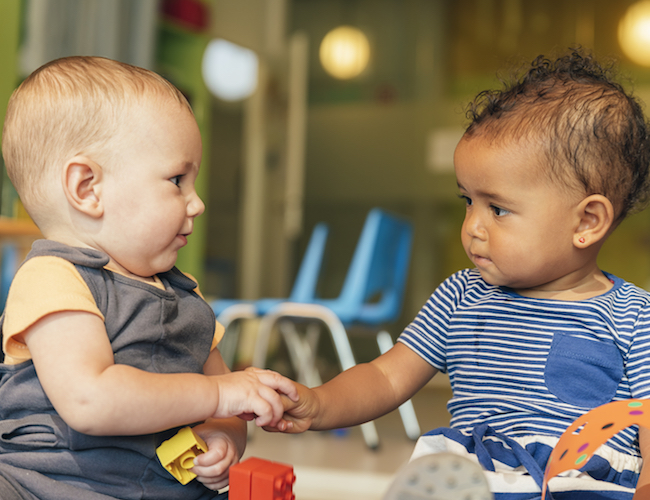Is it too early to start teaching your toddler manners?
The short answer is no, as kids start picking up social cues from a very young age.
Children pick up on social skills very early in life, and they can start to model behaviour from just 18 months old – which means it’s never too early for them to be hearing the words please and thank you.
According to parent coach, Laura Markovitz, children learn through how they are treated, which is why modelling good behaviour is so important. “If we grab things from our children without saying please and thank you, then that’s how they are learning to behave. We cannot expect our children to be polite if that’s not what they are hearing from us as parents in our day to day lives,” she points out.
Three ways to set the scene for good manners
• Playing with dolls or action figures is a positive way to illustrate the right and wrong way to treat other people
• Use play to demonstrate where we can correct our behavior: “I think Spiderman is crying because Spiderwoman just grabbed that rock from him. Maybe if she asked him nicely, he would feel better.”
• Use repetition to reinforce your message. It would be great if children absorbed things the first time we told them. However, as any parent knows, that’s not how it works. It takes repetition and commitment to entrench what we are trying to teach them.
The importance of teaching your toddler manners from a young age
“There’s a reason we try to teach our children good manners from early on,” says Markovitz. “We have to remember that they are social beings and in time they will interact with both friends and adults outside of their homes. They’re more likely to make good connections with other people and have their needs met if they’re able to assert themselves and treat others with respect.”
Indeed, saying thank you is a way to show someone you appreciate what they have done; while saying please creates a request rather than a demand.
Children who engage with others in a polite manner tend to be well liked by their peers, other parents, their teachers and later in life their bosses and co-workers. In short, good manners set the stage for success in just about every social situation your child may find themselves.
IMAGE CREDIT: shutterstock.com



